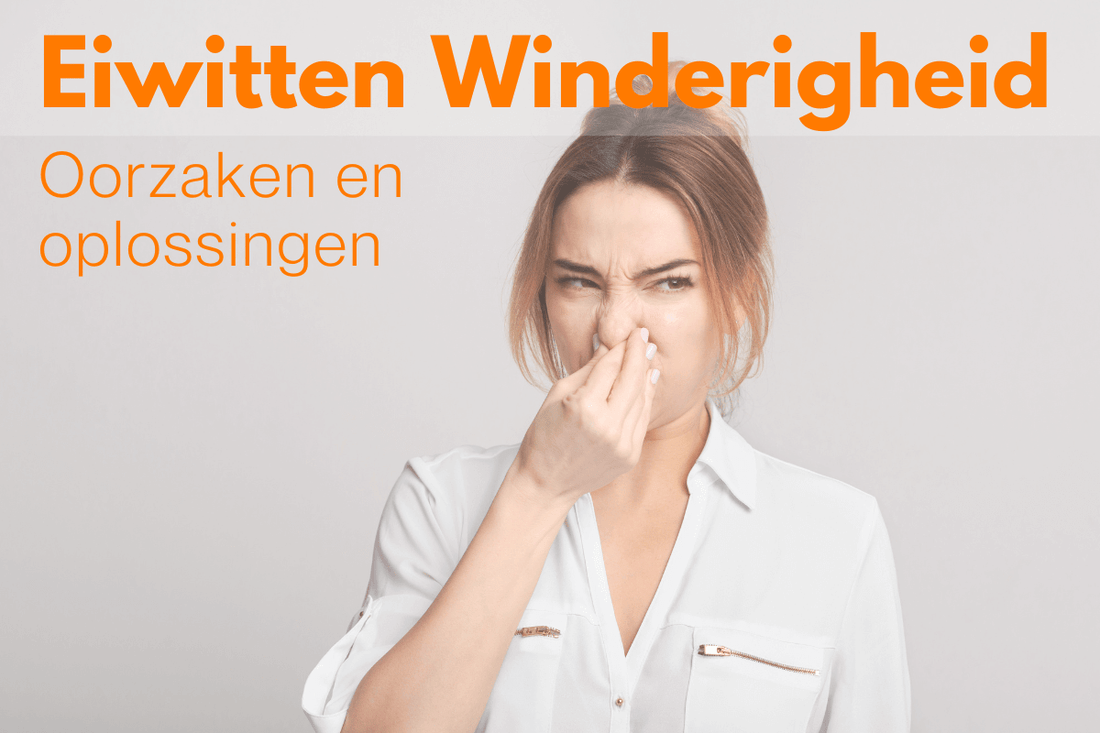
Protein and Flatulence: What Causes It and How to Fix It?
Share
Protein is an essential part of a healthy diet. It supports muscle recovery, tissue formation, and the functioning of enzymes and hormones. However, some people experience symptoms such as gas or bloating on a high-protein diet. This blog post explains why this happens, which types of protein are more susceptible to digestive problems, and what you can do to reduce discomfort.
Why proteins are important
Proteins are made up of amino acids and form the building blocks of virtually every body tissue. They contribute to muscle maintenance, cell repair, and a stable metabolism. Both animal and plant-based protein sources can contribute to your health, as long as the quality and digestion are appropriate for your personal situation. For people with specific needs, such as athletes or the elderly, sufficient protein in the diet is especially important.
What causes flatulence?
Flatulence is the result of gas formation in the gastrointestinal tract. When digesting food, undigested remains are fermented by bacteria in the large intestine, producing gas. This is a normal process, but can be exacerbated by certain foods or disrupted gut flora.
Factors contributing to gas formation
- Lactose intolerance : People who have difficulty digesting lactose are more likely to develop gas. A lactose-free protein shake may be better tolerated in this case.
- Soy or gluten : Some people are sensitive to soy protein or gluten, which can lead to cramps or flatulence. A soy-free version is an alternative.
- Eating quickly and chewing little : This causes air to enter the stomach, contributing to gas buildup.
- Excessive protein intake : Large amounts of protein per meal can be difficult to digest. On average, the body effectively absorbs about 20 to 30 grams of protein at a time.
Protein quality and digestion
Not all proteins are tolerated equally well. Cheap protein powders often contain fillers, artificial sweeteners, or low-quality ingredients. These can exacerbate fermentation in the intestines. If you experience symptoms, it may be helpful to switch to a shake without added sugars or artificial sweeteners.
A gut-friendly protein shake often uses fermented or mild protein sources. Fermentation is a process in which microorganisms partially break down proteins, which ensures better absorption and less intestinal strain.
Foods that can increase flatulence
- Legumes (beans, lentils)
- Cabbage varieties (broccoli, cauliflower, Brussels sprouts)
- Onions and garlic
- Carbonated drinks
- Fried and fatty foods
Those who are sensitive to flatulence should consume these products in moderation, especially in combination with protein-rich meals.
Tips to Reduce Flatulence with Protein
- Distribute your protein intake over the day
- Drink enough water with your meal
- Choose more digestible protein sources such as natural shakes
- Use fermented foods or probiotics
- Avoid shakes with artificial sweeteners or flavors
When is medical advice necessary?
In most cases, flatulence is harmless. However, if it's accompanied by other symptoms such as diarrhea, weight loss, blood in the stool, or severe abdominal pain, it's wise to consult a doctor. This could indicate an intolerance, food allergy, or underlying intestinal disorder.
Conclusion
Protein-related flatulence is common, but usually easily explained. The cause is often lactose, soy, poor digestion, or overdose. By paying closer attention to portion size, protein type, and digestion, symptoms can often be reduced. Those with sensitive guts are advised to choose simple, easily absorbed protein sources without artificial additives. Fermented proteins or shakes without lactose or soy can often provide relief.
